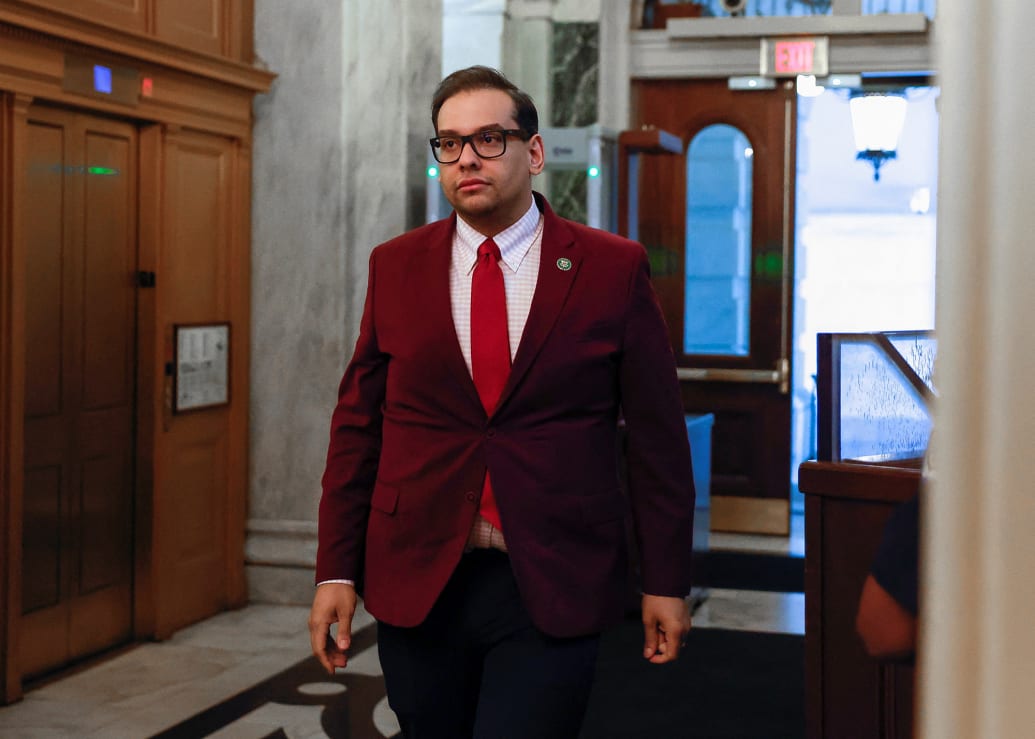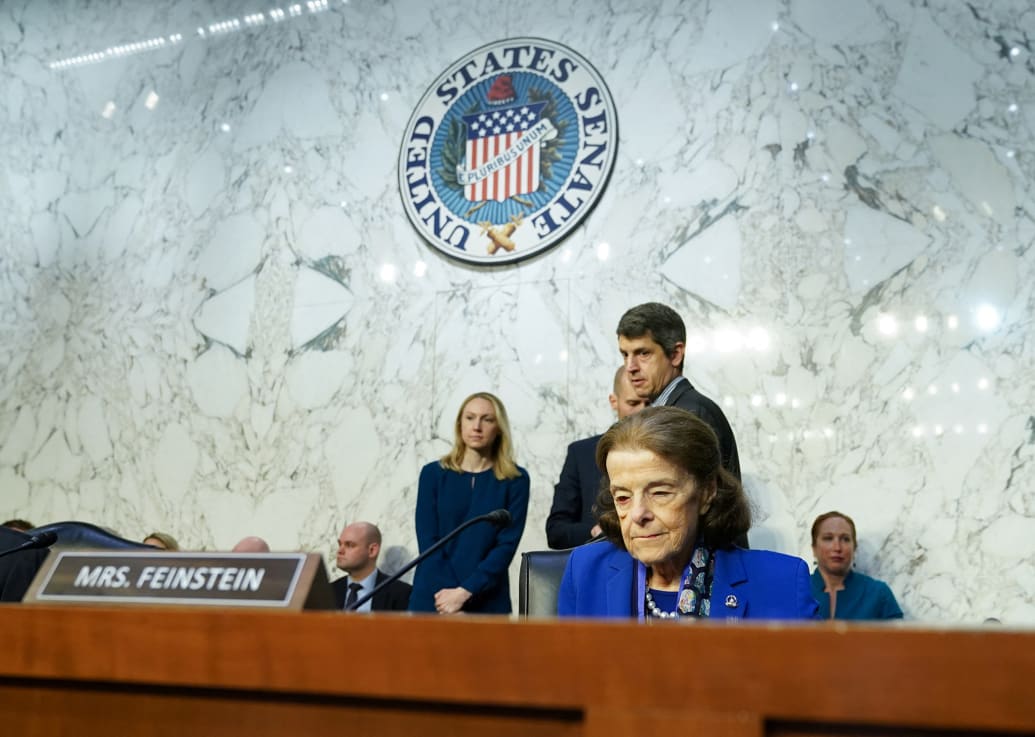Public trust in elected officials is at an all-time low, and it’s not hard to see why. Between the gerontocracy that controls our governing bodies, the corrupting influence of money in politics, and a thriving anger-tainment industry operating within the very hallowed halls of the U.S. Capitol, it’s past time we act to restore Americans’ faith in our democracy.
Take Sen. Dianne Feinstein: a trailblazer for women, a fierce advocate for Californians, and a remarkable American. She is, and will continue to be, a revered leader in Democratic politics, and after her renowned history, deserves to exit her Senate career thoughtfully, graciously, and quickly.
After battling a severe case of shingles, the senator has returned to Washington, but accounts from colleagues, reporters, and staff paint a stark picture: the senator’s health and mental acuity leave her unable to fulfill the responsibilities of her office. She must now decide whether to protect political power at the expense of the Americans she represents, or to step down and set a new, principled precedent in Congress.
When I made headlines for calling on Sen. Feinstein to resign, it was never a question of her qualifications or character—but of her continued competency to serve the people of California. What I said out loud is simply a sentiment shared privately by many; by choosing to remain in her seat, Sen. Feinstein not only risks tarnishing her remarkable legacy, but fails to uphold the sacred oath of duty we have made as members of Congress.
But this is about more than one individual—it’s about the future of our country and our democracy. Corrupt crooks like Rep. George Santos (R-NY)—who has brought nothing but lies, corruption, embarrassment, and shame to the People’s House—should not be allowed to serve unchecked amongst our legislative bodies.
As members of Congress, we are sworn to uphold an oath—not to protecting a political majority at all costs, but to protecting and serving our country, our constituents, and our democracy. The responsibilities of the offices we hold must be placed above the job security of the individuals occupying them.
Unfortunately, there are few options for holding members of Congress accountable once they are elected. I served on the House Ethics Committee for four years. With five Democrats and five Republicans, you can imagine what often transpired behind closed doors: at best, a cherry-picked approach to justice, and, more often, outright gridlock and abdication. Furthermore, the Department of Justice regularly asked us to stand down when it was investigating a member of Congress, rendering the committee useless in regulating House members in the most egregious cases. It’s a body lacking the resources or structure to deliver the expeditious accountability Congress needs.

Rep. George Santos heads to the floor of the House of Representatives for a vote on a Republican motion to refer a Democratic-sponsored resolution to expel Santos from the House to the House Ethics Committee instead of an immediate expulsion vote, on Capitol Hill in Washington, on May 17, 2023.
Evelyn Hockstein/Reuters
If elected leaders continue doing what’s politically expedient over what is right, this crisis of confidence and trust will only get worse.
So, how can we ask the American people to trust us if we refuse to be honest with them?
How can we restore faith if we refuse to do what’s right and instead engage in this repulsive, relentless pursuit of power?
I’m in the business of practicing what I preach—and I’ll keep doing it, no matter the party in question.
Calling out bad behavior is a beginning, but building a government that is more accountable to the highest standards of ethics, competency, and honesty will require action.
I believe, with straightforward reforms and determined optimism, we can begin to repair our broken politics and restore Americans’ faith in their government.
We need change, and we need it now. So, let’s get to work:
Legacy: High functioning organizations become so by building strong benches and limiting the tenure of leaders. We must consider adopting term limits for our judicial and legislative branches, committee chairs, and party leaders. Doing so will foster breadth and depth of ideas and allow our institution to reflect the changing needs of our people. Renowned leaders can leave at the height of their legacy, instead of watching it fall to the wayside. And the American people can take confidence in the fact that their interests, rather than the pursuit of power, will win the day.
Competency: Most federal government staff are subjected to scrutinous background checks, especially if they have access to classified material, and it’s time we demand the same for those who are elected. Members of Congress are privy to classified information, documents, and briefings. Their comments, actions, and liabilities can move markets and impact alliances, and their mishandling of documents, contributions, or information can facilitate crimes and espionage. Ensuring members of Congress have the credentials required to earn basic security clearance is in America’s best interest, and I’ll soon be reintroducing legislation to require it.
Ethics: We must address the elephant present in every room on Capitol Hill: money.

Sen. Dianne Feinstein takes her seat for a Senate Judiciary Committee executive business meeting to vote on legislation and pending nominations before the committee, on Capitol Hill in Washington, on May 11, 2023.
Kevin Lamarque/Reuters
The relentless pursuit of special interest money is corrupting our politics and, on top of that, real and perceived patterns of self-enrichment have profoundly damaged Americans’ trust in their elected leaders.
No member of Congress should be allowed to trade private stocks. It’s unethical and just plain exploitative, and as one of the few people in Congress who has proactively established a qualified blind trust, I think it’s damn time we require it. The bipartisan TRUST in Congress Act, authored by Rep. Abigail Spanberger (D-VA), would require members to relinquish personal control of their investments and place them in the hands of external investors—a practice that should be the rule, not the exception.
“…how can we ask the American people to trust us if we refuse to be honest with them?”
We must also reverse the Supreme Court’s disastrous Citizens United vs. FEC decision and reform our pay-for-play campaign finance system. As one of the only members of Congress who refuses all campaign contributions from federal lobbyists, special interest PACs, and other members of Congress and their leadership PACs, I promise you, it’s possible.
Consensus: We have an anger-tainment industry that thrives on stoking the flames of hyper-partisanship, and the echo chambers on our screens leave many Americans doubting that collaboration in Washington is even possible.
But it doesn’t have to be like this!
We should incentivize consensus-seeking candidates to run for office by promoting ranked choice voting in our elections.
And we should break bread, share personal stories, and seek to understand perspectives of people who think, eat, pray, and vote differently, as I have done in Common Ground Workshops across Minnesota.
Because trust is the foundation our democracy is built on, and without trust in each other—and those who occupy the highest offices of our government—our democratic principles erode around us.
The crisis of trust is about more than the Feinsteins and Santoses in our body, but the systemic flaws that have allowed unchecked scandals to occur in Congress for centuries.
Repairing our broken system will take courage: the courage to say publicly what others are afraid to, the courage to challenge the status quo, and the courage to put the interests of the American people ahead of political interests.
It will be challenging, frustrating, and at times, unpopular. But our people, our Congress, and our country deserve better.
It’s time for pragmatic progressives and collegial conservatives to get off the sidelines, roll up our sleeves, and get to work.
Keep the faith.
Dean Phillips is a father, businessman, civic leader, eternal optimist, and Representative for Minnesota’s Third Congressional District in Congress.




